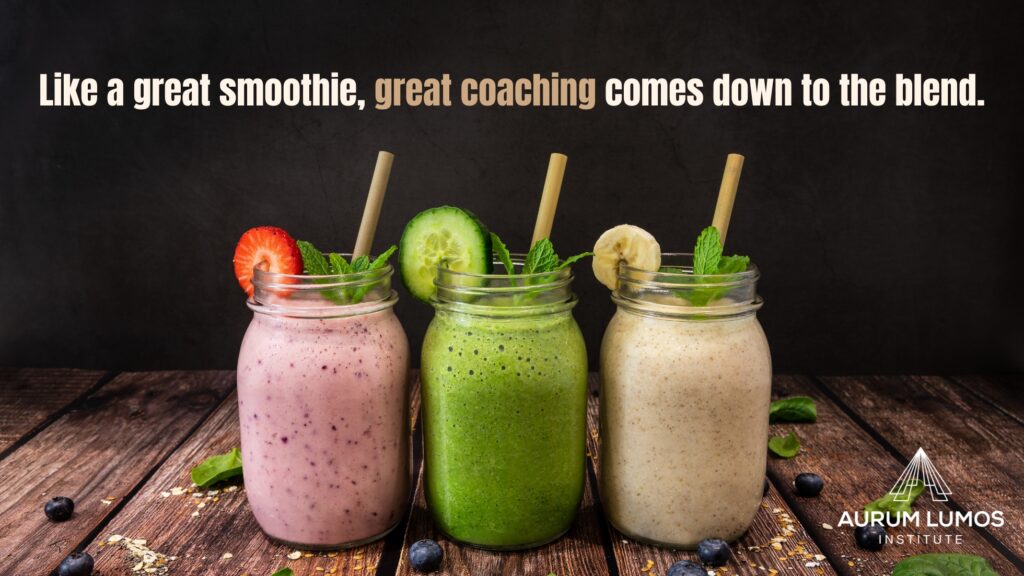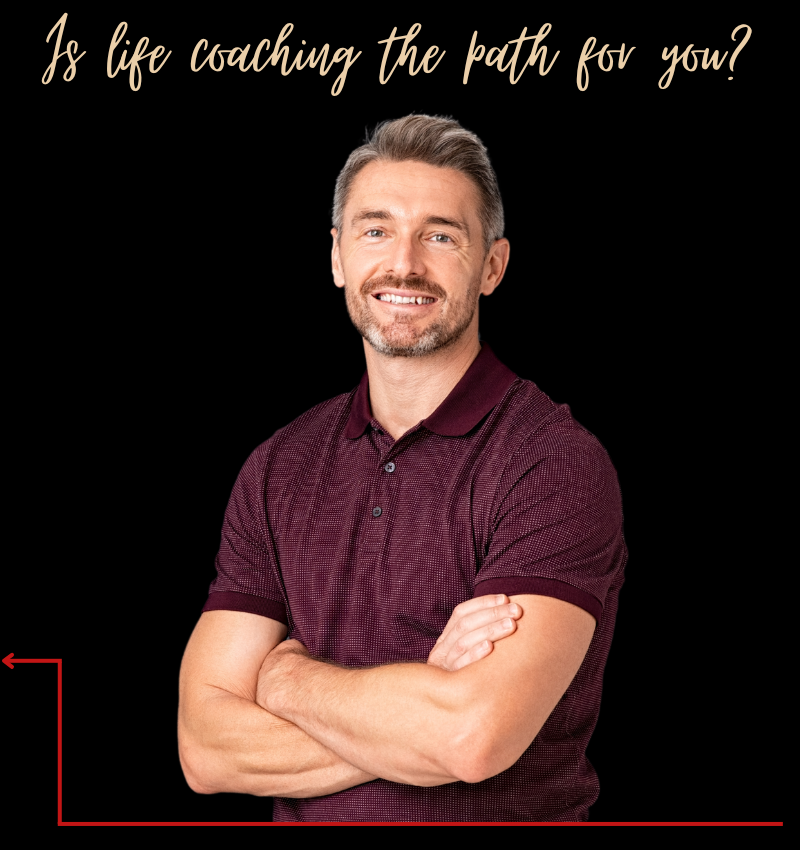To become a life coach, you don’t need a specific degree or license—but the most impactful coaches usually have a life coach certification.
While anyone can call themselves a coach, true effectiveness comes from mastering proven coaching frameworks, communication tools, and ethical practices. That’s where a quality life coach certification makes a big difference.
The right program equips you with practical skills, confidence, and credibility to guide real transformation. Whether you’re starting fresh or transitioning from another career, investing in the right certification sets you apart and helps you serve clients with clarity, purpose, and professionalism.
So when you ask, “What qualifications do I need to be a life coach?” …
Here three things to remember:
- No formal degree required – Life coaching isn’t a regulated industry, so anyone can call themselves a coach.
- Skills and training matter – Strong communication, empathy, and goal-setting tools are essential to actually help clients.
Certification builds credibility – A reputable life coach certification can give you more structure in your learning, confidence in your practice as well as an ability to build more trust and rapport with the clients you serve
Related Read: Do You Need a Degree to Get a Life Coach Certification Online?
Now let’s break this down and make it fun—because becoming a coach should feel like stepping into your purpose, not a paperwork checklist.

The Qualifications We Feel Every Good Life Coach Should Have
(Because being a great life coach is like making the perfect smoothie.)
Anyone can toss things into a blender and call it a smoothie… but we all know the difference between a lumpy, watery mess and that chef’s kiss kind of blend that fuels your body and tastes amazing.
That’s the kind of coach we’re aiming for—one who brings the right ingredients together to be truly effective, supportive, and transformational.
So what does it take to make a life coach “smoothie” that actually works? Here’s our recipe:
1. A Base of Purpose (a.k.a. Why You’re Doing This)
Like any good smoothie, you’ve got to start with a strong base—your why. Is it to help people navigate transitions? Break through limiting beliefs? Level up in their personal or professional lives?
Without a clear purpose, your coaching can end up watery and inconsistent. But when you know your deeper motivation, your sessions are grounded, your presence is powerful, and your message resonates.
Coaches who start with purpose show up more confidently, attract aligned clients, and build real momentum. So, blend in that banana, almond milk, or whatever makes your smoothie you, and let your purpose set the tone.
2. A Scoop of Skills (Communication, Listening, Goal-Setting, etc.)
You can’t just vibe your way through coaching sessions—you need real, practiced skills. Think of these as your protein powder: they’re what give your coaching real substance. The essentials?
- Active listening (not just waiting to talk)
- Powerful questioning (open-ended, thought-provoking, forward-focused)
- Goal-setting frameworks (like SMART, GROW, or others)
Emotional intelligence and the ability to read between the lines
These are the tools that help your clients feel seen, supported, and stretched in the best way. You can build them over time, but they’re a non-negotiable part of the mix.
P.S. Here at the Aurum Lumos Institute, we teach SMART, GROW, and other proven models—but the real standout is our proprietary ALI Framework (Alignment & Activation, Life Elevation, and Integration). It’s designed to help you guide clients through meaningful transformation with clarity, confidence, and heart. It’s the secret sauce that makes our coaches stand out.
These are the tools that help your clients feel seen, supported, and stretched in the best way. You can build them over time, but they’re a non-negotiable part of the mix.
3. Certification: Your Superfood Boost
Can you technically coach without certification? Sure. Just like you can technically make a smoothie with water and a carrot. But… Why would you?
A solid life coach certification adds that credibility boost, a deeper understanding of coaching methodology, and—let’s be honest—a confidence kick. It shows clients that you’ve been trained, that you’re serious, and that you know what you’re doing.
Plus, the right program teaches you how to hold boundaries, navigate sticky conversations, and create real transformation—not just motivational fluff. Think of it as your spirulina, maca, or collagen. Not always flashy, but definitely elevates the whole experience.
Discover if life coaching is right for you!
Watch our on-demand presentation now.

4. Authenticity and Integrity: Your Sweetener (But Make It Natural)
No one wants a fake sugar high. The best coaches are real, honest, and committed to growth—both for themselves and their clients. Integrity means doing what you say, honoring client confidentiality, and showing up consistently.
It also means knowing when not to coach—when something falls outside your scope, or when a client would benefit from therapy instead. (That’s professionalism, and it builds trust.)
Your authenticity is what makes your coaching feel warm, relatable, and safe. And just like a touch of honey or a handful of dates, it keeps everything feeling human and connected.
5. Practice and Feedback: The Daily Blend
You don’t master coaching by reading books alone. Just like you wouldn’t call yourself a chef after watching a few cooking reels. You’ve got to blend it daily.
Practice with real people. Get feedback. Reflect and adjust. The coaches who grow the most are the ones who stay humble and hungry to improve.
Start where you are—friends, peers, practice clients—and build from there. Coaching is a skill set, and skill sets sharpen with use.

In Summary: Your Life Coach Smoothie Recipe
To be a great life coach, you don’t need a PhD or 10 years of experience. But you do need the right blend of:
- Purpose – your authentic reason for coaching
- Skills – the actual tools that create change
- Certification – a quality program to sharpen your craft
- Integrity – being real, responsible, and client-centered
- Practice – showing up, doing the work, and staying curious
When you’ve got that combo? You’re not just another coach—you’re someone who changes lives.
Now go blend up your brilliance. 🧡
So NOW when you think about “What Qualifications Do I Need to Be A Life Coach?”…
Remember that it’s not about ticking boxes or chasing titles.
It’s about blending purpose, skill, credibility, and authenticity into something that truly serves others. With the right training, like our ALI Framework at Aurum Lumos, you don’t just learn to coach—you learn to lead, to listen deeply, and to help people change their lives for the better.
And that’s the kind of qualification that really matters.
Is Becoming a Life Coach for You?
If you’re feeling the draw toward helping others lead a life filled with purpose, as well as a desire to build a career that actually makes a difference—this could be your next best YES!
Join our free masterclass to explore what it really takes to become a life coach, how to know if it’s the right path for you, and what makes the Aurum Lumos approach so unique.
Discover if life coaching is right for you!
Watch our on-demand presentation now.



